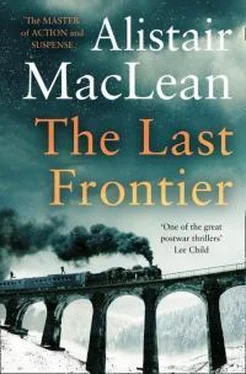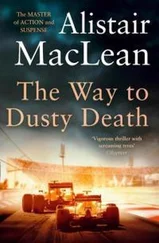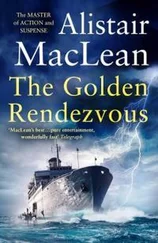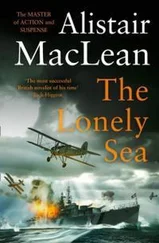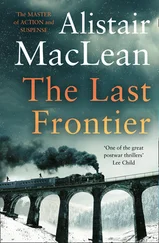Алистер Маклин - The Last Frontier
Здесь есть возможность читать онлайн «Алистер Маклин - The Last Frontier» — ознакомительный отрывок электронной книги совершенно бесплатно, а после прочтения отрывка купить полную версию. В некоторых случаях можно слушать аудио, скачать через торрент в формате fb2 и присутствует краткое содержание. Год выпуска: 2012, Издательство: Sterling, Жанр: Шпионский детектив, на английском языке. Описание произведения, (предисловие) а так же отзывы посетителей доступны на портале библиотеки ЛибКат.
- Название:The Last Frontier
- Автор:
- Издательство:Sterling
- Жанр:
- Год:2012
- ISBN:нет данных
- Рейтинг книги:3 / 5. Голосов: 1
-
Избранное:Добавить в избранное
- Отзывы:
-
Ваша оценка:
- 60
- 1
- 2
- 3
- 4
- 5
The Last Frontier: краткое содержание, описание и аннотация
Предлагаем к чтению аннотацию, описание, краткое содержание или предисловие (зависит от того, что написал сам автор книги «The Last Frontier»). Если вы не нашли необходимую информацию о книге — напишите в комментариях, мы постараемся отыскать её.
The Last Frontier — читать онлайн ознакомительный отрывок
Ниже представлен текст книги, разбитый по страницам. Система сохранения места последней прочитанной страницы, позволяет с удобством читать онлайн бесплатно книгу «The Last Frontier», без необходимости каждый раз заново искать на чём Вы остановились. Поставьте закладку, и сможете в любой момент перейти на страницу, на которой закончили чтение.
Интервал:
Закладка:
‘A ruthless and dangerous man,’ the Count murmured. ‘I told you. A killer, but he happens to be on the side of the law.’
‘Yes.’ Reynolds was unmoved. ‘And there’s another point. Like many other brilliant men, Jennings is rather naïve and short-sighted when it comes to matters outside his own speciality. Mrs Jennings tells us that the Russians have assured her husband that the project he is working on will be used for exclusively peaceful purposes. Jennings believes this. He’s a pacifist at heart, and so–’
‘All the best scientists are pacifists at heart.’ Jansci was sitting down now, but his eyes were still hostile. ‘All the best men everywhere are pacifists at heart.’
‘I’m not arguing. All I’m saying is that Jennings is now at the stage where he would sooner work for the Russians, if he thinks he is working for peace, than for his own people, if he knows he is working for war. Which makes him all the more difficult to move – and which – in turn, makes necessary the use of every lever that comes to hand.’
‘The fate of his young son is, of course, a matter of indifference.’ The Count waved an airy hand. ‘Where such tremendous stakes are at issue–’
‘Brian, his son, was in Poznan all day yesterday,’ Reynolds interrupted. ‘Some exposition or other, mainly for youth organizations. Two men shadowed him from the moment he got up. By noon tomorrow – to-day, that is – he’ll be in Stettin. Twenty-four hours later he’ll be in Sweden.’
‘Ah, so. But you are too confident, Reynolds, you underestimate Russian vigilance.’ The Count was regarding him thoughtfully over the rim of his brandy glass. ‘Agents have been known to fail.’
‘These two agents have never failed. They are the best in Europe. Brian Jennings will be in Sweden tomorrow. The call-sign comes from London on a regular European transmission. Then, and not till then, we approach Jennings.’
‘So.’ The Count nodded. ‘Perhaps you have some humanity after all.’
‘Humanity!’ Jansci’s voice was cold still, almost contemptuous. ‘Just another lever to use against the poor old man – and Reynolds’ people know very well that if they left the boy to die in Russia Jennings would never work for them again.’
The Count lit another of his interminable chain of brown cigarettes.
‘Perhaps we are being too harsh. Perhaps, here, self-interest and humanity go hand in hand. “Perhaps,” I said … And what if Jennings still refuses to go?’
‘Then he’ll just have to go whether he wants to or not.’
‘Wonderful! Just wonderful!’ The Count smiled wryly. ‘What a picture for Pravda . Our friends here lugging Jennings by the heels across the border and the caption “British Secret Agent Liberates Western Scientist.” Can’t you just see it, Mr Reynolds?’
Reynolds shrugged and said nothing. He was only too keenly aware of the change of atmosphere in the past five minutes, the undercurrent of hostility that now ran strongly towards himself. But he had had to tell Jansci everything – Colonel Mackintosh had been insistent on that point, and it had been inevitable if they were to have Jansci’s help. The offer of help, if it were to be made at all, now hung in the balance – and without it, Reynolds knew, he might as well have saved himself the trouble of coming at all … Two minutes passed in silence, then Jansci and the Count looked at one another and exchanged an almost imperceptible nod. Jansci looked squarely at Reynolds.
‘If all your countrymen were like you, Mr Reynolds, I wouldn’t lift a finger to help you: cold-blooded, emotionless people to whom right and wrong, justice and injustice, and suffering are matters of academic disinterest are as guilty, by silence of consent, as the barbarous murderers of whom you so recently spoke: but I know they are not all like you: neither would I help if it were only to enable your scientists to make machines of war. But Colonel Mackintosh was – is – my friend and I think it inhuman, no matter what the cause, that an old man should die in a foreign land, among uncaring strangers, far from his family and those he loves. If it lies in our power, in any way at all, we will see to it, with God’s help, that the old man comes safely home again.’
FOUR
The inevitable cigarette holder clipped between his teeth, the inevitable Russian cigarette well alight, the Count leaned a heavy elbow on the buzzer and kept on leaning until a shirt-sleeved little man, unshaven and still rubbing the sleep from his eyes, came scurrying out from the little cubicle behind the hotel’s reception desk. The Count eyed him with disfavour.
‘Night-porters should sleep in the daytime,’ he said coldly. ‘The manager, little man, and at once.’
‘The manager? At this hour of the night?’ The night-porter stared with ill-concealed insolence at the clock above his head, transferred his stare to the Count, now innocuously dressed in a grey suit and grey raglan raincoat, and made no effort at all to conceal the truculence in his voice. ‘The manager is asleep. Come back in the morning.’
There came a sudden sound of ripping linen, a gasp of pain, and the Count, his right hand gripping the bunched folds of the porter’s shirt, had him halfway across the desk: the blood-shot, sleep-filmed eyes, widened first with surprise and then with fear, were only inches away from the wallet that had magically appeared in the Count’s free hand. A moment of stillness, a contemptuous shove and the porter was scrabbling frantically at the pigeon-holed mail racks behind him in an attempt to keep his balance.
‘I’m sorry, comrade, I’m terribly sorry!’ the porter licked his lips suddenly dry and stiff. ‘I – I didn’t know–’
‘Who else do you expect to come calling at this hour of night?’ the Count demanded softly.
‘No one, comrade, no one! No – no one at all. It’s just that – well, you were here only twenty minutes ago–’
‘ I was here?’ It was the raised eyebrow as much as the inflection of the voice that cut short the frightened stammering.
‘No, no, of course not. Not you – your people, I mean. They came–’
‘I know little man. I sent them.’ The Count waved a weary hand in bored dismissal and the porter hurried off across the hall. Reynolds rose from the wall-bench where he had been sitting and crossed the room.
‘Quite a performance,’ he murmured. ‘You even had me scared.’
‘Just practice,’ the Count said modestly. ‘Sustains my reputation and doesn’t do them any permanent harm, distressing though it is to be addressed as “comrade” by such a moron … You heard what he said?’
‘Yes. They don’t waste much time, do they?’
‘Efficient enough in their own unimaginative way,’ the Count conceded. ‘They’ll have checked most of the hotels in town by morning. Only a slim chance, of course, but one that they can’t afford to neglect. Your position is now doubly safe, three times as safe as it was at Jansci’s house.’
Reynolds nodded and said nothing. Only half an hour had elapsed since Jansci had agreed to help him. Both Jansci and the Count had decided that he must leave there at once: it was too inconvenient, too dangerous. It was inconvenient not so much because of the cramped accommodation, but because it was in a lonely and out of the way place: movements of a stranger at any hour of the day or night, such as Reynolds might be compelled to make, would be sure to draw unfavourable attention: it was too remote from the centre of the town, from the big hotels of Pest, where Jennings might be expected to be staying: and, biggest drawback of all, it had no telephone for instant communications.
And it was dangerous because Jansci was becoming increasingly convinced that the house was being watched: in the past day or two both Sandor and Imre had seen two people, singly and on several different occasions, walking slowly by the house on the other side of the street. It was unlikely that they were innocent passers-by: like every city under a police state rule, Budapest had its hundreds of paid informers, and probably they were just confirming their suspicions and gathering their facts before going to the police and collecting their blood-money. Reynolds had been surprised by the casual, almost indifferent way Jansci had treated this danger, but the Count had explained as he had driven the Mercedes through the snow-filled street to this hotel on the banks of the Danube. The changing of their hideouts because of suspicious neighbours had become so frequent as to be almost routine, and Jansci had a sixth sense which, so far, had always led them to pull out in good time. Annoying, the Count said, but no serious inconvenience, they knew of half a dozen bolt-holes just as good, and their permanent headquarters, a place known to Jansci, Julia and himself, was in the country.
Читать дальшеИнтервал:
Закладка:
Похожие книги на «The Last Frontier»
Представляем Вашему вниманию похожие книги на «The Last Frontier» списком для выбора. Мы отобрали схожую по названию и смыслу литературу в надежде предоставить читателям больше вариантов отыскать новые, интересные, ещё непрочитанные произведения.
Обсуждение, отзывы о книге «The Last Frontier» и просто собственные мнения читателей. Оставьте ваши комментарии, напишите, что Вы думаете о произведении, его смысле или главных героях. Укажите что конкретно понравилось, а что нет, и почему Вы так считаете.
